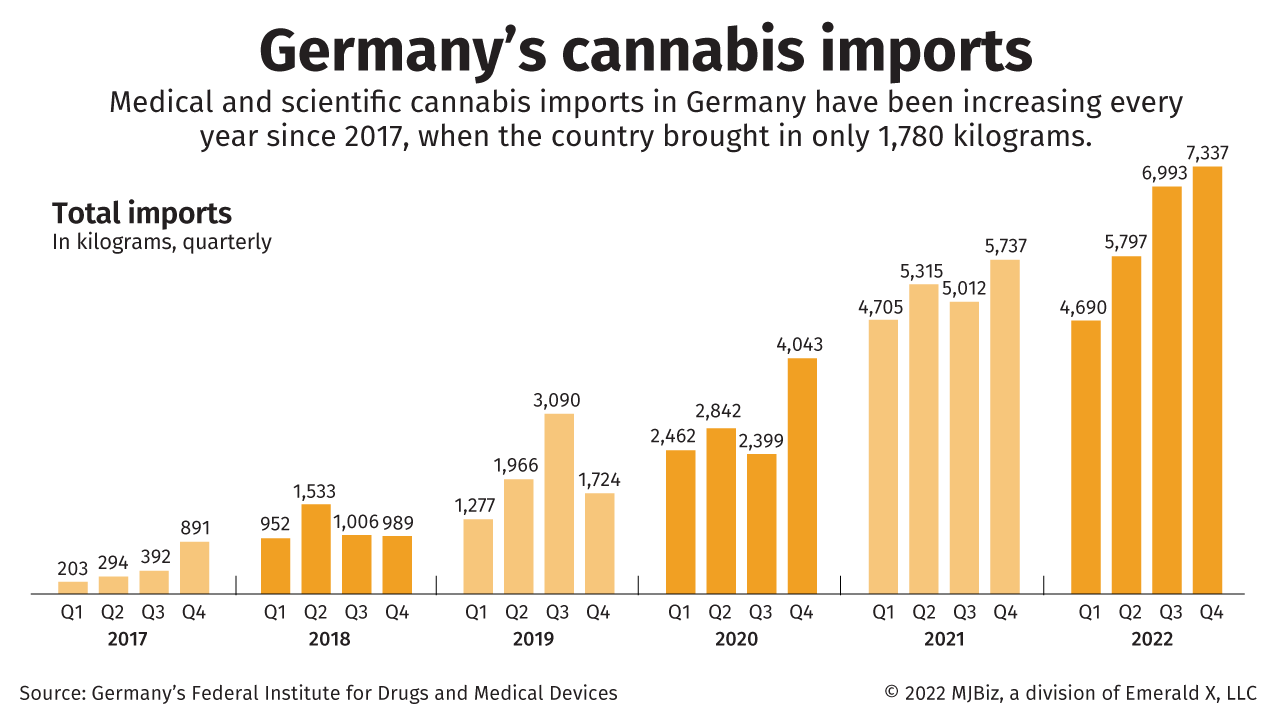The German government might be having second thoughts about its plans to pursue full-fledged adult-use cannabis legalization in Europe’s largest economy.
According to German news reports, federal officials are considering a “cannabis legalization light” model amid concerns that nationwide legalization could violate European law.
As a result, Germany might roll out a trial model like those adopted by other jurisdictions such as the Swiss city of Zurich, under which recreational cannabis sales would be confined to certain parts of the country for three to five years.
The Düsseldorf-based newspaper Handelsblatt reported that European Union legal hurdles, including resistance from neighboring France, are prompting German officials to rethink their plans.
Handelsblatt and other German news outlets reported the latest events, citing unidentified government sources in lieu of an official announcement.
However, the genesis of the latest development could actually be the center-left Social Democratic Party, a key member of the current coalition government that includes the Free Democratic and Green parties.
Last week, the Social Democratic Party issued a lengthy statement on cannabis reform and signaled that officials are prepared to scale back their ambitions.
The statement acknowledged that comprehensive legalization in Germany “is obviously not feasible in the short term” because of European legalities.
‘Practical’ moves to legalization
The party also said it supports Health Minister Karl Lauterbach’s “practical” steps toward legalization, even if they fall short of comprehensive legalization.
“From our point of view, these can be model projects (also known as “trial” programs), decriminalization and self-cultivation,” according to the SPD document.
The party put forward ideas, such as:
- Allowing home cultivation for a limited number of plants.
- Limiting personal possession.
- Investing profits, if any are allowed to be made, in addiction and prevention initiatives.
The statement acknowledged that limits on THC are understandable but noted that such caps could end up undermining the regulated market by driving consumers to illicit sellers.
In addition, the party said a central component of its revised plan is allowing so-called cannabis social clubs rather than traditional retail stores.
Such “cooperatively organized associations” would give people without their own cultivation opportunity access to legal cannabis, the document notes.
Not surprised
Cannabis industry executives said they’re not surprised by the latest news, which has been the subject of speculation for months.
“We have been expecting this result – a ‘model’ project – for several months and are therefore not surprised,” Constantin von der Groeben, managing director of Berlin-headquartered cannabis company Demecan, told MJBizDaily via email.
“Anything else would have been too difficult to align with EU regulation.”
Still, von der Groeben suggested that even a scaled-back initiative would be a major step.
A limited trial program “could be implemented more quickly,” he wrote.
“It might not even have to pass the Bundesrat (the second chamber in parliament). Legalization as early as January 2024, instead of the previously planned Q3 2024, would thus be possible.”
Early in the process
Germany has yet to produce a draft law, so experts say it’s too early to come to conclusions.
In October 2022, the German government published a blueprint for its plan to legalize and regulate adult-use cannabis.
- European cannabis execs would welcome German trial legalization program
- Germany unveils scaled-down recreational cannabis legalization plan
The proposed blueprint suggested:
- Keeping cultivation within Germany.
- Selling cannabis in approved stores and, possibly, pharmacies.
- Allowing the home cultivation of up to three plants.
That blueprint was sent to the European Commission, the EU’s executive branch, for approval to ensure compatibility with European Union and global drug laws.
That process is ongoing.
Germany’s changing plans have already caused one large Canadian cannabis producer to scale back its revenue forecast.
Tilray Brands has abandoned its pledge to achieve annual revenue of $4 billion (5.3 billion Canadian dollars) by the end of 2024.
Tilray acknowledged that federal legalization in the United States and Germany has not played out as the company had expected.
Matt Lamers can be reached at matt.lamers@mjbizdaily.com.





